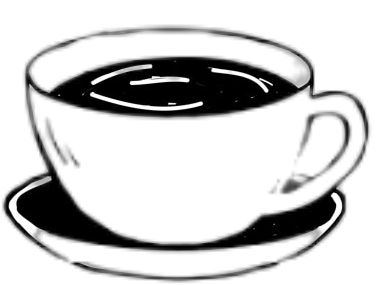
Personal Experience with Alternatives to Coffee
As my exploration of the question "Why Can't Mormons Drink Coffee?" progressed, I found myself reflecting on my own experiences with alternative beverages. With coffee being a social staple for many, I wanted to discover drinks that offered similar comfort and warmth without the caffeine. This led me to experiment with various herbal teas, chicory root coffee, and even some unique blends that are gaining popularity.
One drink that I found particularly enjoyable was a roasted dandelion root tea. It has a rich, nutty flavor that surprisingly satisfies my craving for something robust. The first time I brewed a cup, I was taken aback by how similar it felt to my past experiences with coffee. It provided a warm, soothing moment, perfect for those cozy evenings when I wanted to unwind. I appreciated how this alternative allowed me to partake in the ritual of a warm beverage while aligning with the health-conscious lifestyle many Mormons embody.
Exploring Herbal Teas: A New Ritual
In my search for alternatives, I also began exploring various herbal teas. I stumbled upon a delightful chamomile and lavender blend that became my go-to evening drink. The calming properties of chamomile help soothe the mind, making it an ideal choice for winding down after a long day.
Incorporating this tea into my evening routine has been a pleasant change. The aroma alone creates a comforting atmosphere, and the act of preparing and enjoying a cup has become a cherished ritual. I found that while I initially missed the act of sipping coffee, these herbal alternatives provided a sense of relaxation and mindfulness that I hadn't anticipated.
The Benefits of Non-Caffeinated Options
Reflecting on my experiences, it’s clear that embracing non-caffeinated options can offer numerous benefits, especially for those who choose to abstain from coffee for religious or health reasons.
Reduced Anxiety: Many individuals, including myself, have found that eliminating caffeine can lead to a decrease in anxiety levels. The jittery feelings associated with coffee are absent, allowing for a calmer mindset.
Better Sleep: Without the stimulating effects of caffeine, I noticed an improvement in my sleep quality. Choosing herbal teas in the evening has become a key factor in establishing a peaceful bedtime routine.
Variety and Flavor: The world of herbal teas and alternative drinks is vast and exciting. I enjoyed experimenting with different flavors and blends, which opened up a whole new avenue of taste exploration.
Digestive Health: Many herbal teas offer digestive benefits, something I found particularly appealing. Ginger and peppermint teas, for example, can aid digestion and provide comfort after meals.
Why Can't Mormons Drink Coffee? A Broader Perspective
As I continued to dive into this topic, I realized that the question "Why Can't Mormons Drink Coffee?" is not just about coffee itself. It's a lens through which we can explore how dietary choices are intertwined with beliefs, identity, and health. The prohibition against coffee prompts a thoughtful examination of how personal choices shape our lives and the importance of finding alternatives that resonate with our values.
From my perspective, the experience of abstaining from coffee can be a liberating journey. It opens up new avenues for exploration and offers a chance to reevaluate what we consume and why. For those who follow the teachings of the LDS Church, this commitment can strengthen one's faith and foster a sense of community. However, even for those outside the faith, considering the reasons behind such choices can lead to deeper conversations about health, wellness, and personal values.
Conclusion: Embracing Alternatives Mindfully
In conclusion, while the question of "Why Can't Mormons Drink Coffee?" may seem straightforward, it leads to a rich tapestry of beliefs and choices that shape lives in meaningful ways. My exploration into coffee alternatives has not only helped me understand the cultural context of this prohibition but also enriched my own beverage experience.
As someone who has embraced this journey, I encourage others—whether Mormons or not—to explore the world of herbal teas and alternative drinks. There is a wealth of flavors and benefits waiting to be discovered. In doing so, you may find a new ritual that aligns with your values, supports your health, and even brings a sense of peace and mindfulness to your daily routine. It’s about finding what works best for you and enjoying the journey along the way.
Why Can't Mormons Drink Coffee: An In-Depth Review
As someone intrigued by cultural practices and their underlying beliefs, I found myself wondering about the question, "Why can't Mormons drink coffee?" This inquiry led me down a fascinating path that unraveled the complexities of religious guidelines, lifestyle choices, and personal experiences surrounding this topic. In this article, I aim to share insights from my exploration, shedding light on the reasons behind the prohibition of coffee consumption among Mormons, as well as the implications it has on their lifestyle.
The Cultural Context: Understanding Mormon Beliefs
To grasp the question of "Why Can't Mormons Drink Coffee?" we must first delve into the foundational beliefs of the Church of Jesus Christ of Latter-day Saints (LDS), commonly known as Mormons. The primary doctrine prohibiting coffee comes from a health code called the Word of Wisdom, which was revealed to the church's founder, Joseph Smith, in 1833. This code discourages the consumption of alcohol, tobacco, tea, and coffee, promoting a lifestyle of moderation and health.
The rationale behind this restriction is tied to the belief in maintaining a clean body and spirit. For many Mormons, following the Word of Wisdom is not merely a guideline but a covenant with God. This commitment extends to their daily habits and dietary choices, influencing everything from their social interactions to their culinary preferences.
Why Can't Mormons Drink Coffee: Health Considerations
One significant aspect of the Word of Wisdom is its focus on health and well-being. Mormons believe that avoiding coffee and other stimulants contributes to a healthier lifestyle. The caffeine in coffee can lead to dependence and other health issues, which contrasts with the church's teachings of treating the body as a temple.
From my conversations with Mormons, it’s clear that many view this prohibition as a positive lifestyle choice. They emphasize the benefits of avoiding caffeine, such as improved sleep, reduced anxiety, and better overall health. This perspective challenges the stereotype of coffee as a harmless indulgence and instead positions it within a broader narrative of health and wellness.
Why Can't Mormons Drink Coffee: Social Implications
Another fascinating dimension to the question of "Why Can't Mormons Drink Coffee?" is its social implications. In many social settings, coffee is a common beverage that fosters connection and conversation. However, for Mormons, the choice to abstain can create unique social dynamics.
In gatherings and meetings, it’s common to find alternative beverages like herbal tea or fruit juices. While this can sometimes lead to feelings of exclusion, many Mormons have adapted to these situations by embracing their choices and finding camaraderie in their shared beliefs. The experience of abstaining from coffee becomes a point of pride, reinforcing their identity and community ties.
Pros and Cons of Not Drinking Coffee
After reflecting on my exploration, I compiled a list of pros and cons related to the question "Why Can't Mormons Drink Coffee?"
Pros:
- Health Benefits: Avoiding caffeine can lead to better sleep and reduced anxiety levels.
- Community Identity: The prohibition fosters a strong sense of community among Mormons.
- Mindfulness: Many find that abstaining from coffee encourages a more mindful approach to consumption and lifestyle choices.
- Alternative Choices: The absence of coffee promotes the discovery of diverse and healthy beverage options.
- Spiritual Discipline: Adhering to the Word of Wisdom enhances personal spiritual growth and commitment to faith.
Cons:
- Social Exclusion: Abstaining from coffee can sometimes lead to feelings of being left out in social gatherings.
- Cultural Misunderstanding: Misconceptions about their beliefs can lead to misunderstandings with non-Mormons.
Why Can't Mormons Drink Coffee: Personal Experiences
Throughout my journey, I had the privilege of speaking with several Mormons about their experiences with coffee. One individual, Sarah, shared her story of growing up in a predominantly coffee-drinking culture. Despite the allure of coffee, she found strength in her faith and chose to abstain, noting that her commitment to the Word of Wisdom has positively influenced her health and relationships.
Another individual, Mike, mentioned how he initially struggled with the social aspect of not drinking coffee. However, over time, he learned to appreciate the alternative drinks available and even discovered a newfound passion for herbal teas. His story exemplifies how personal experiences can shape one's understanding of the prohibition and ultimately lead to a fulfilling lifestyle.
The Broader Implications of the Prohibition
The question "Why Can't Mormons Drink Coffee?" also opens up a larger conversation about dietary restrictions in various cultures and religions. Many faiths have dietary laws that govern what adherents can or cannot consume, and for Mormons, coffee is just one aspect of a broader commitment to health and spirituality.
In my exploration, I found that understanding the reasons behind these restrictions fosters greater respect for diverse beliefs. It highlights the importance of personal choices in shaping one’s identity and the ways in which cultural practices can influence daily life.
Frequently Asked Questions about Why Can't Mormons Drink Coffee
Why do Mormons believe they can't drink coffee?
Mormons adhere to a health guideline known as the Word of Wisdom, which advises against consuming coffee along with other substances like alcohol and tobacco. This guideline is viewed as a way to maintain physical health and spiritual well-being.
Is coffee specifically mentioned in the scriptures?
While coffee itself is not explicitly mentioned in the scriptures, the Word of Wisdom is interpreted to include "hot drinks," which church leaders have defined to mean tea and coffee.
What are the health reasons behind this prohibition?
Mormons believe that avoiding coffee and caffeine can lead to better overall health, including improved sleep, reduced anxiety, and the avoidance of dependency on stimulants.
Do all Mormons avoid coffee?
While the majority of practicing Mormons abstain from coffee due to their faith, individual adherence may vary. Some may choose to follow the guidelines more strictly than others.
What do Mormons drink instead of coffee?
Mormons often opt for herbal teas, fruit juices, or other caffeine-free beverages. Common choices include herbal blends like chamomile, dandelion root tea, or decaffeinated drinks.
How do Mormons handle social situations involving coffee?
In social settings where coffee is served, Mormons typically choose alternative beverages. Many find that their friends and family are respectful of their choices, and it often opens up discussions about their beliefs.
Can Mormons consume decaffeinated coffee?
While decaffeinated coffee does not contain caffeine, it is still considered a "hot drink," and most Mormons avoid it as well, adhering to the broader prohibition on coffee.
What other lifestyle practices are influenced by the Word of Wisdom?
In addition to avoiding coffee, Mormons are encouraged to eat a healthy diet, exercise regularly, and avoid harmful substances. The Word of Wisdom promotes moderation and the consumption of wholesome foods.
Is there any flexibility in the interpretation of these guidelines?
The interpretation of the Word of Wisdom can vary among individuals. Some may follow the guidelines strictly, while others might be more flexible based on personal circumstances or beliefs.
How does abstaining from coffee impact Mormon culture?
Abstaining from coffee contributes to a unique cultural identity among Mormons. It fosters community bonding over shared beliefs and creates distinct social norms surrounding beverage choices.
